Photos: Scientists use wasps to protect local citrus crops from disease
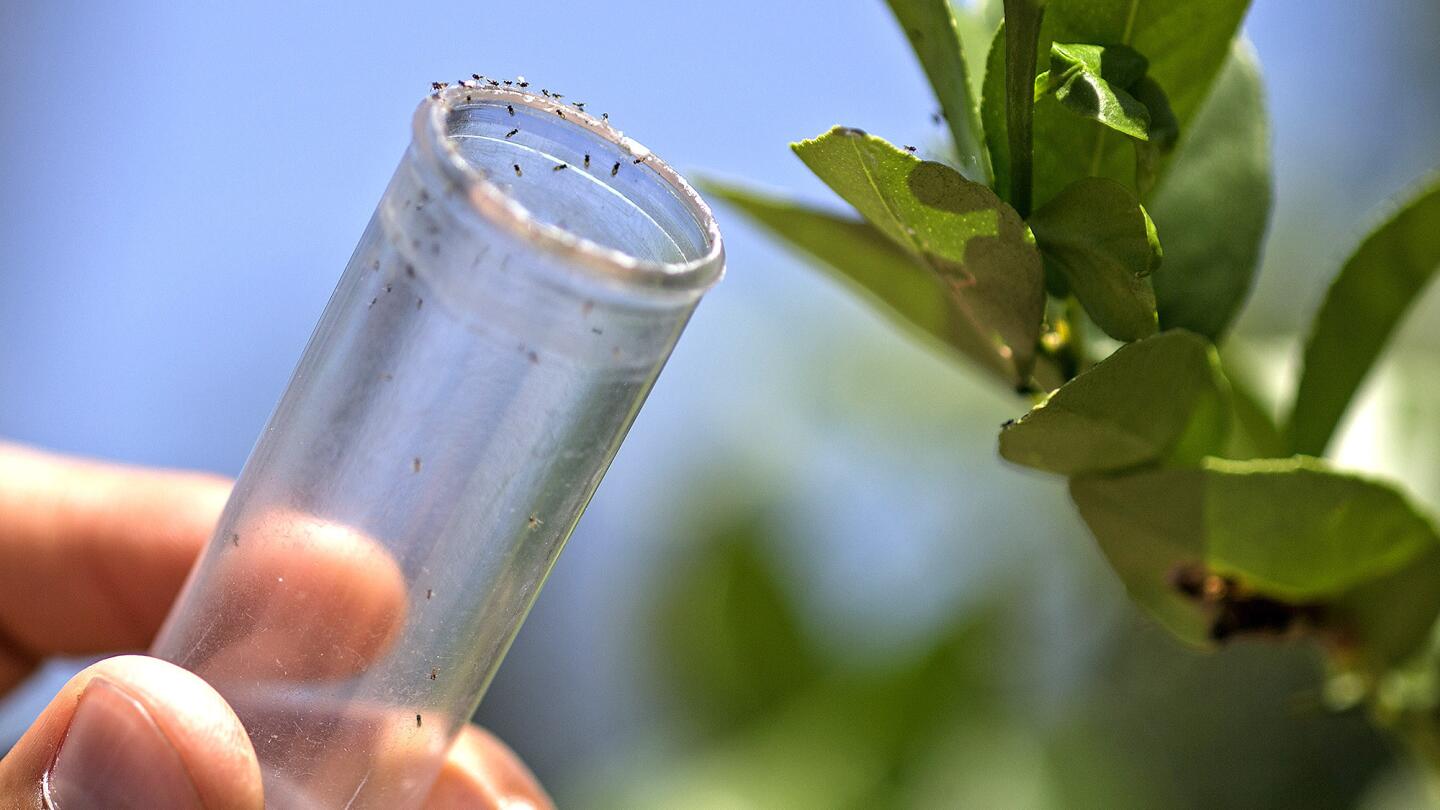
Scientists are releasing the predatory wasps on ctirus plants throughout the state to protect the trees from Asian citrus psyllid infestation.
(Gina Ferazzi / Los Angeles Times)Scientists in Riverside, Calif., breed a predatory wasp that they hope will halt the spread of a parasite carrying bacteria that cause a disease that could decimate the state’s citrus industry.
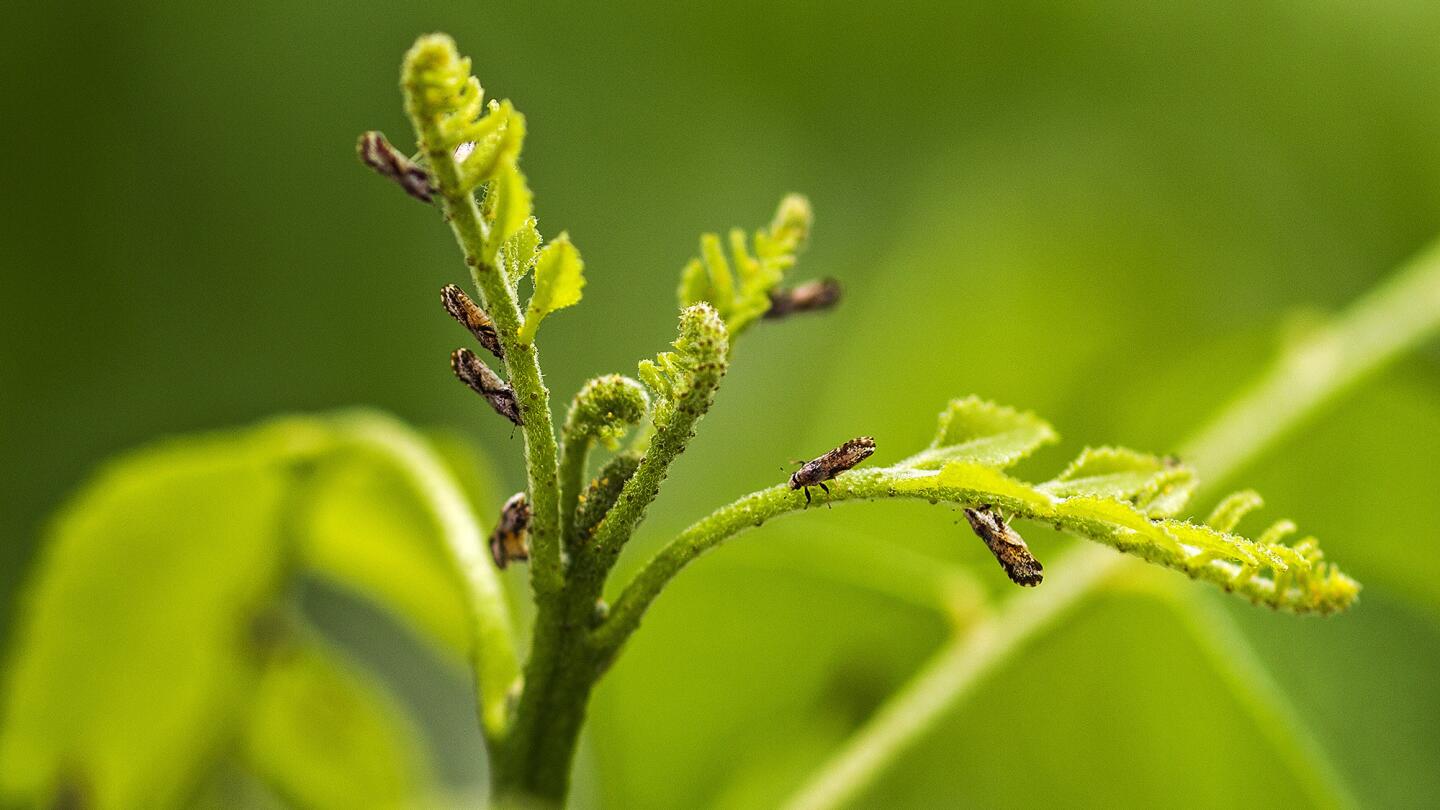
Asian citrus psyllid adults and eggs (the yellow specks), which are parasites that carry a bacteria that is deadly to California’s citrus plants.
(Gina Ferazzi / Los Angeles Times)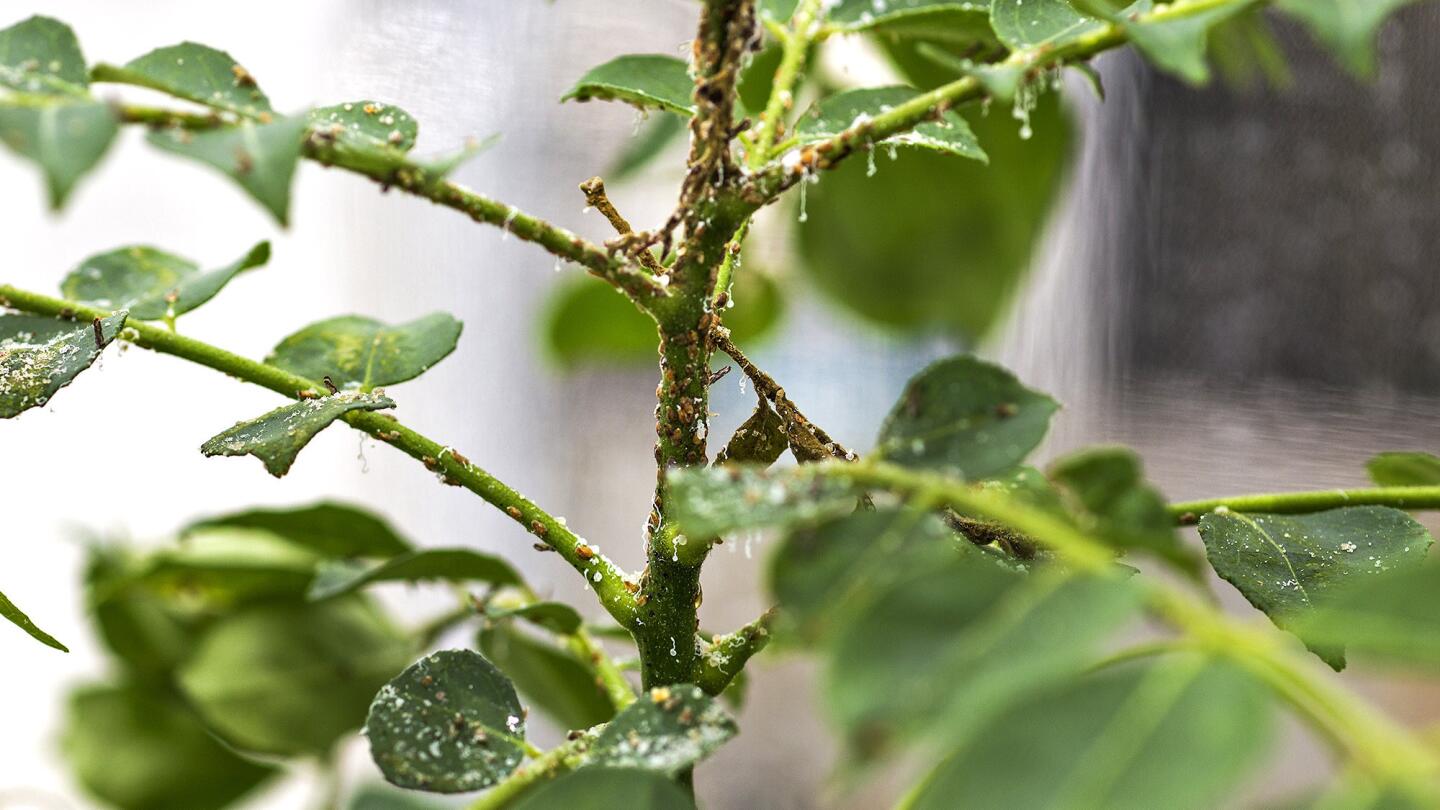
Asian citrus psyllid nymphs feed on a curry leaf, leaving behind their characteristic sugary residue.
(Gina Ferazzi / Los Angeles Times)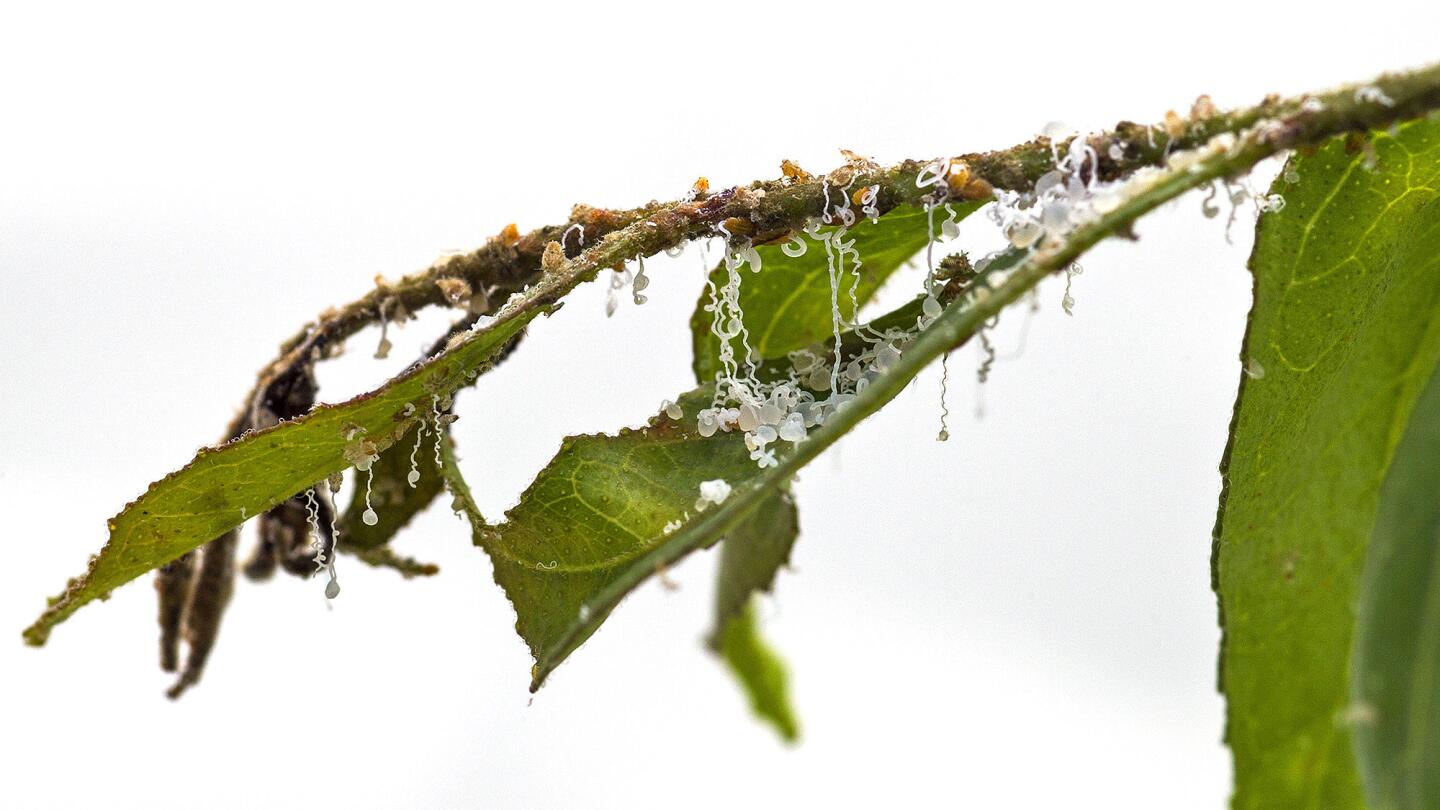
The Asian citrus psyllid carries bacteria that causes a disease that threaten California’s $1.8-billion citrus industry.
(Gina Ferazzi / Los Angeles Times)Advertisement
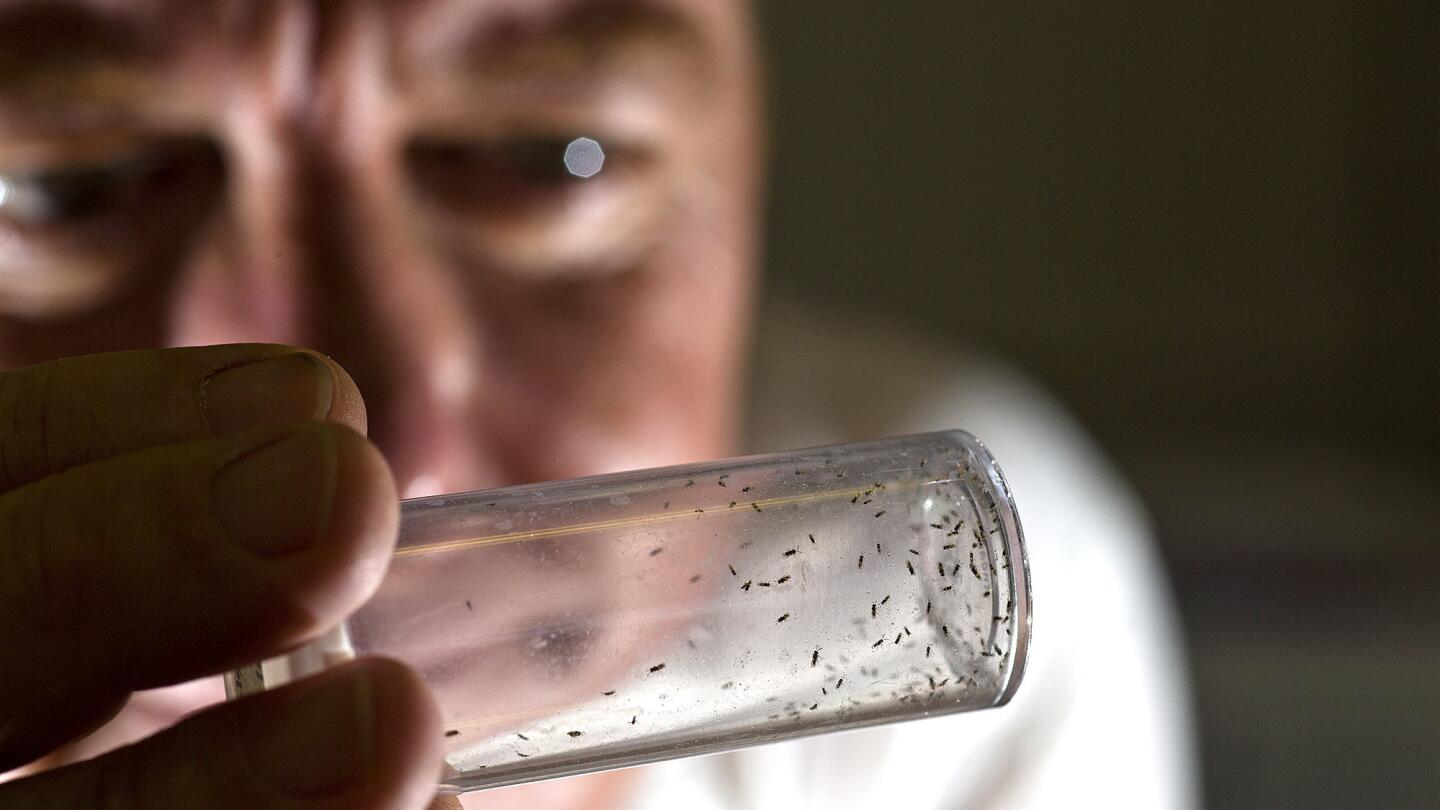
David Morgan, a biocontrol specialist with the California Department of Food and Agriculture, holds a vial containing predatory wasps that prey on Asian citrus psyllid.
(Gina Ferazzi / Los Angeles Times)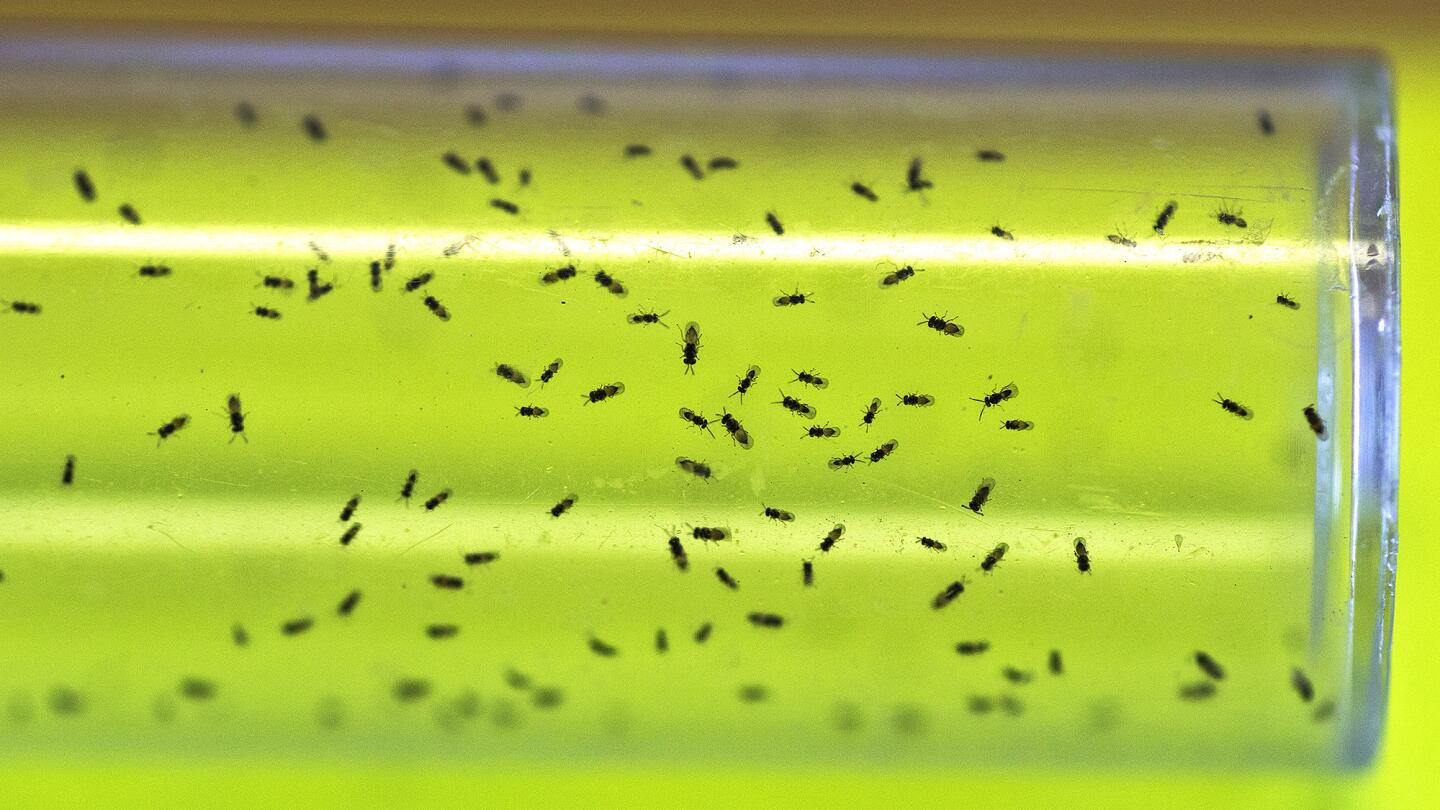
The predatory wasps, <i>Tamarixia radiata</i>, are about the size of a grain of sand and are native of Pakistan.
(Gina Ferazzi / Los Angeles Times)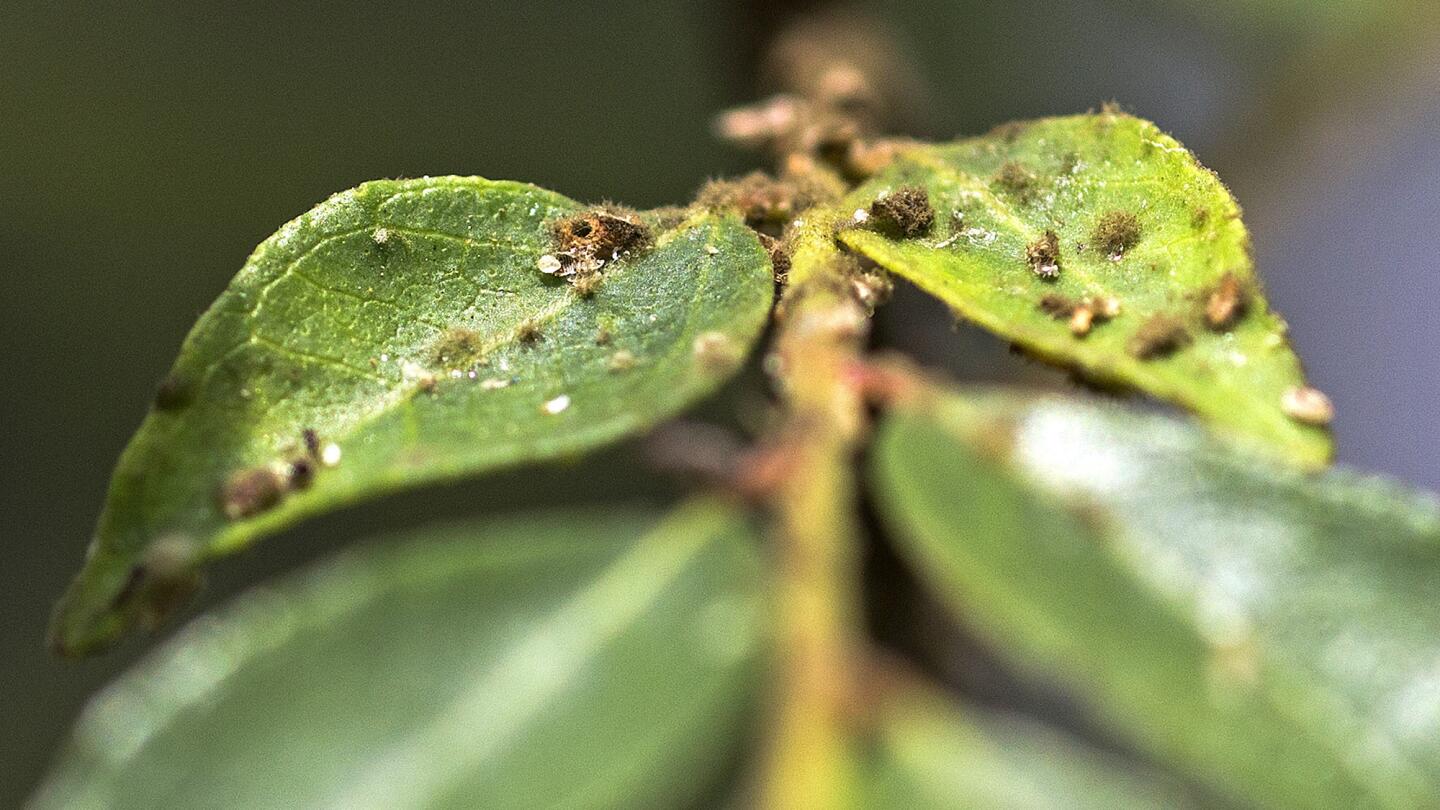
Urban populations and their fondness for citrus trees are aiding the spread of the Asian citrus psyllid and the bacteria it carries, according to researchers and agricultural officials.
(Gina Ferazzi / Los Angeles Times)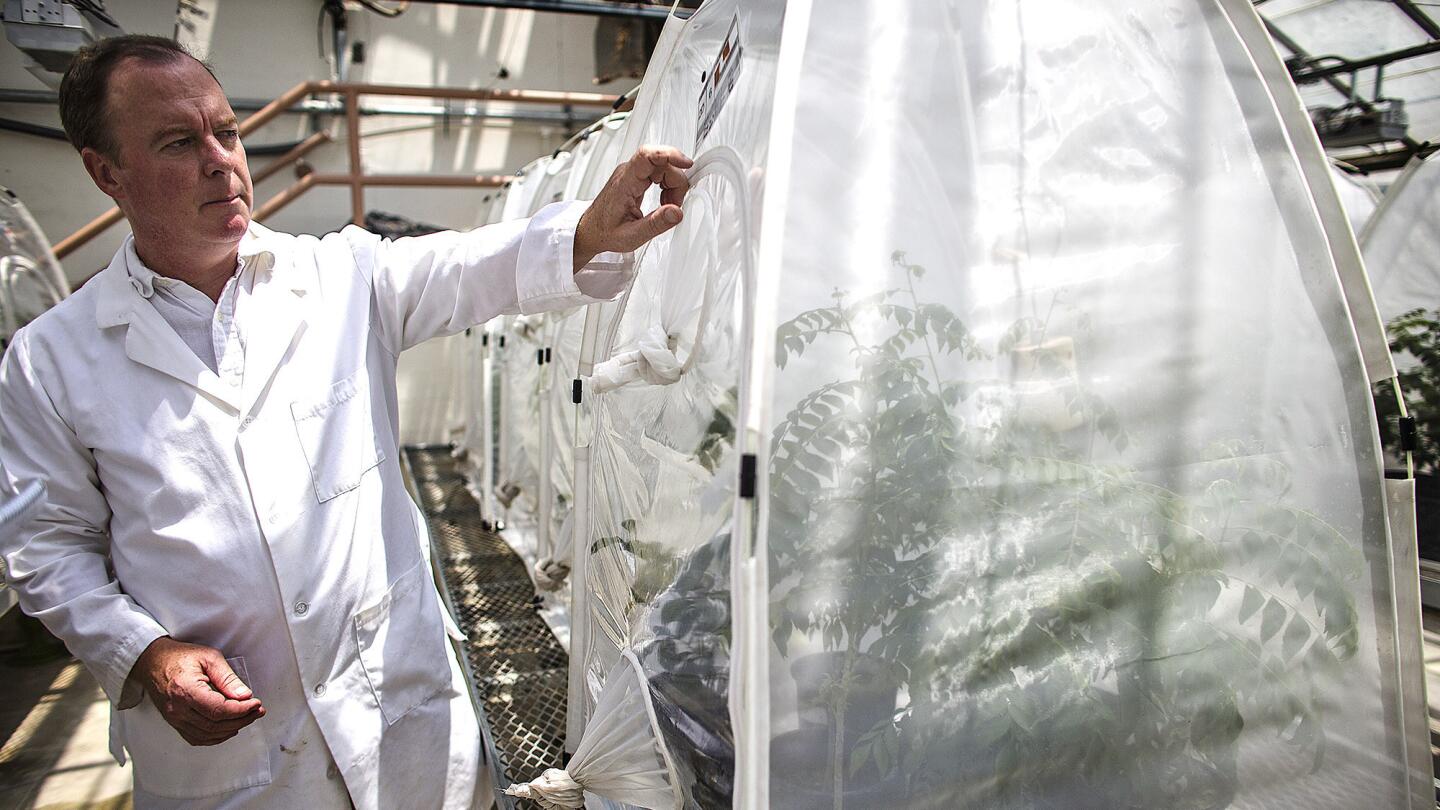
David Morgan opens a production cage of citrus plants that are being prepared for inoculation with the Asian citrus psyllid, at the California Department of Food and Agriculture in Riverside.
(Gina Ferazzi / Los Angeles Times)Advertisement
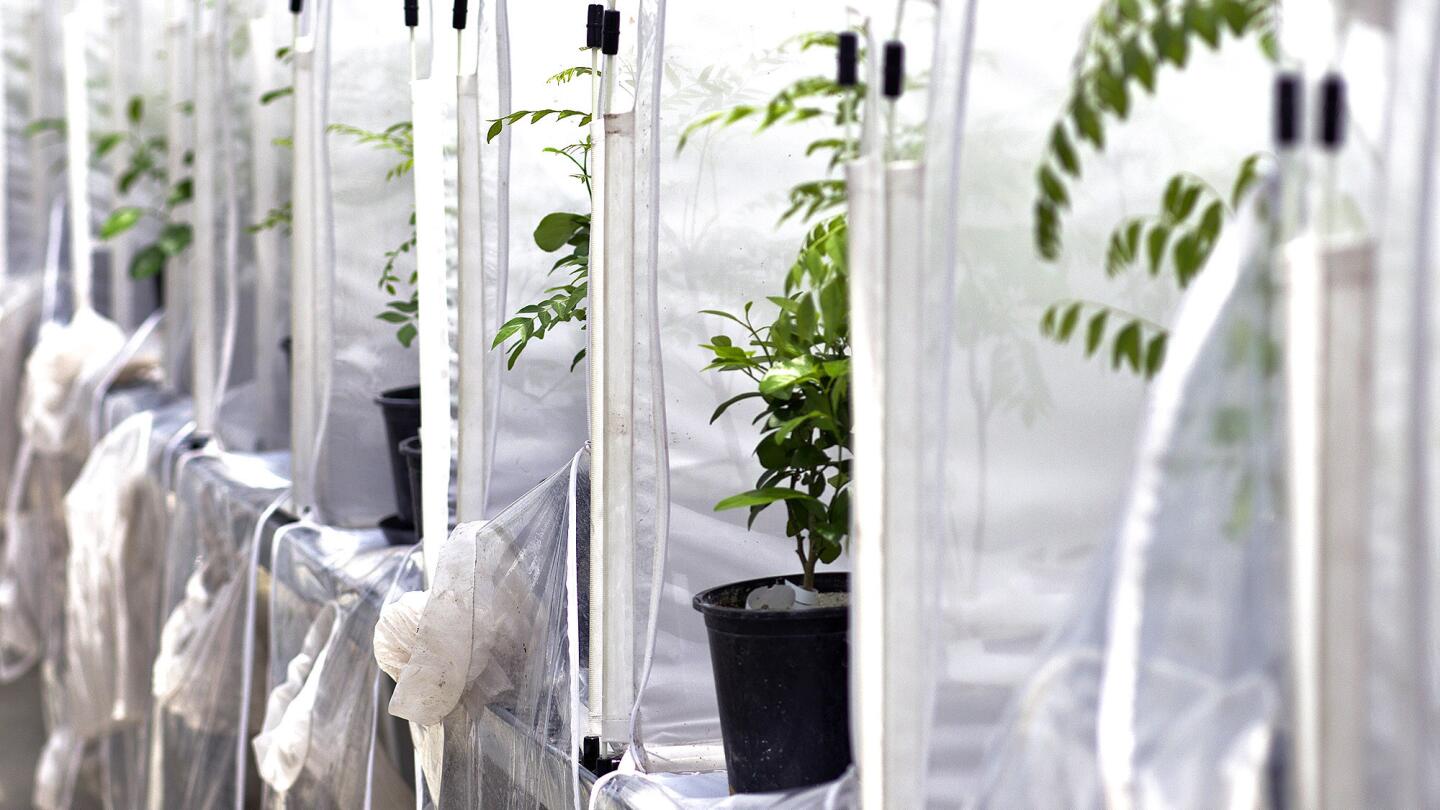
The California Department of Food and Agriculture and state officials have avoided a devastating spread of citrus greening disease by acting quickly. The disease has not been detected in commercial orchards.
(Gina Ferazzi / Los Angeles Times)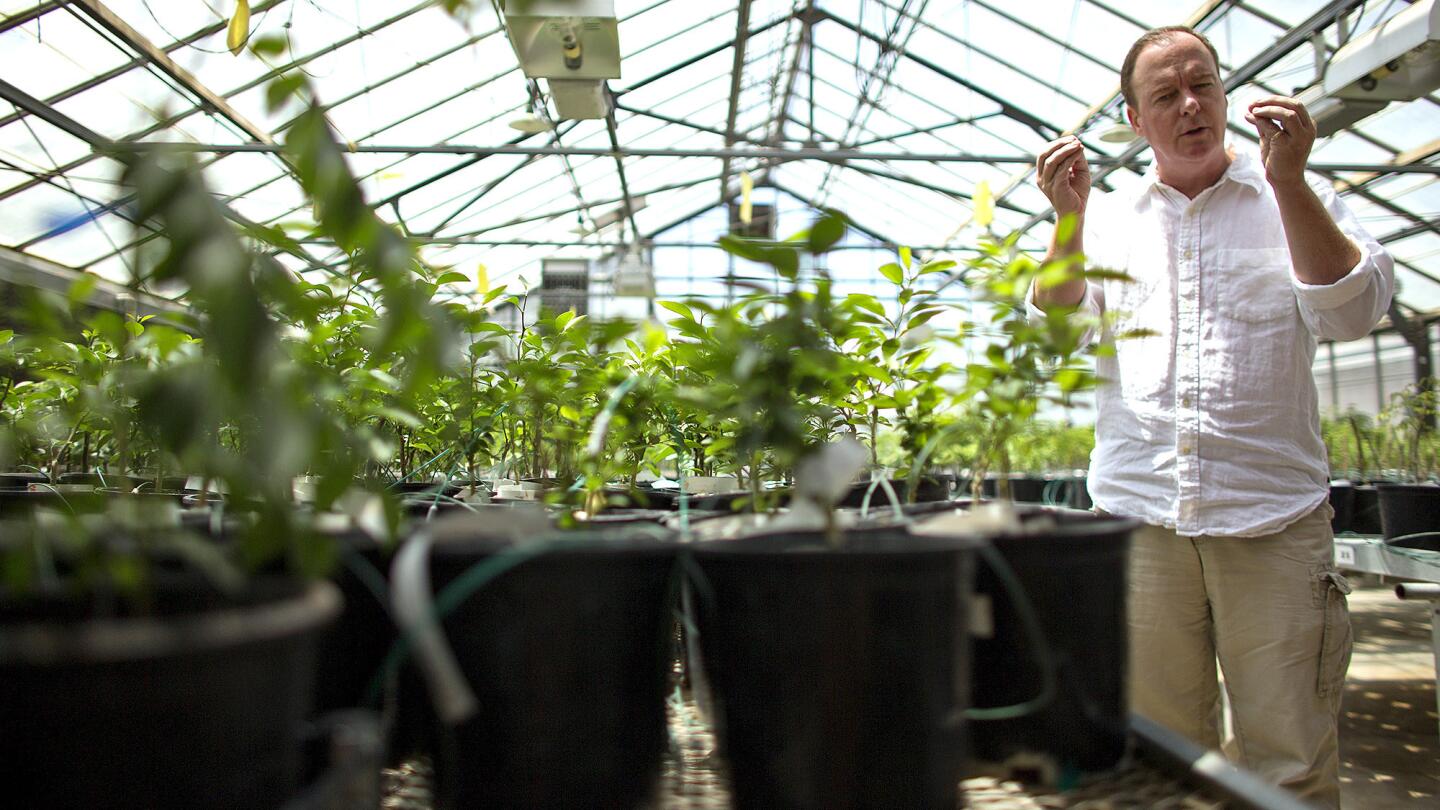
David Morgan says the wasps alone won’t halt the psyllid. But the effort could buy time for scientists to find ways to cure the disease or prevent the bacteria from propagating.
(Gina Ferazzi / Los Angeles Times)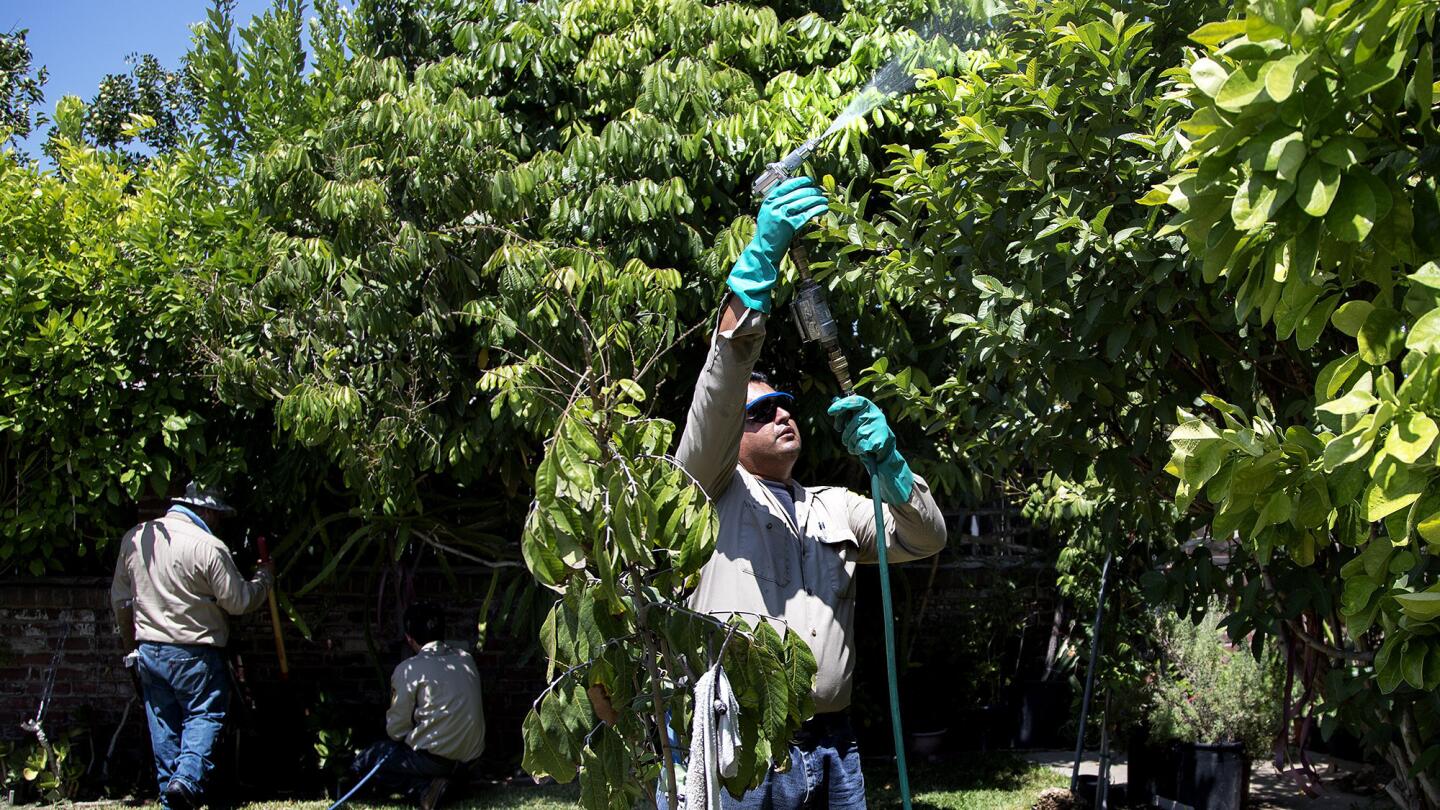
Crews with the California Department of Food and Agriculture spray insecticide on citrus plants in the backyard of a Riverside home that might be affected by Asian citrus psyllid.
(Gina Ferazzi / Los Angeles Times)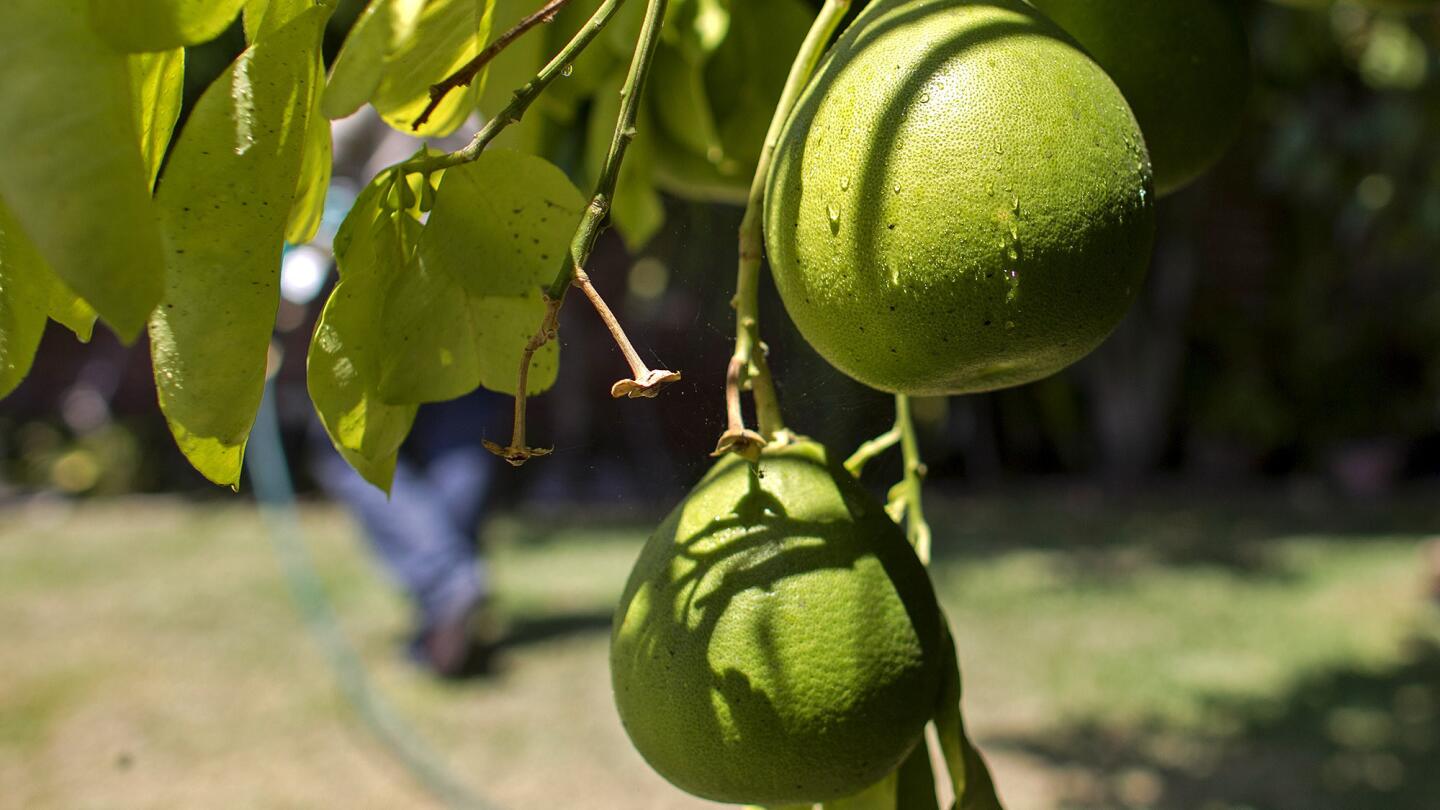
Insecticide drips from a citrus plant after it was to sprayed to protect it from the Asian citrus psyllid.
(Gina Ferazzi / Los Angeles Times)


